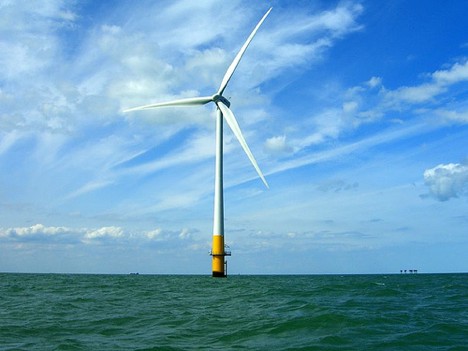Energy–Where Is the Vision?
The energy industry is one of the most sophisticated, heavily capitalized, and technologically advanced industries in human history. Now, as an absolute essential component to our survival and progress, it continues to be confounded and challenged by natural disasters, man-made disasters, brutal partisan and regional politics, overall economic conditions and persistent international disputes. The past 18 months alone have left the industry reeling from an unprecedented economic downturn and financial chaos, continuing wars in the Middle East, the Gulf oil spill, a major coal mine disaster and the still unfolding Fukushima crisis.
How do we prepare for the next step? Do we consult the methane-inhaling Oracles at Delphi? Do we deal the Tarot cards? Do we look to the stars? Do we read the tea leaves or examine goat entrails? Sometimes it seems we need to do all of these things to have a glimpse as to what the next challenge will be for the energy industry.
Never has the need for strong, smart, energy supply and delivery systems been more urgent. All areas of the industry -- oil, gas, nuclear, coal, and renewables -- are faced with technical challenges and operate in a political environment unsurpassed for fractiousness. Huge financial and physical consequences are around every corner. The system still pits one segment of the industry against the other–coal vs. nuclear; natural gas vs. wind; solar vs. other renewables. All of the energy wars are being waged at a time when the world needs to develop, replace, modernize and expand the energy infrastructure while addressing a monumental series of environmental problems. At the epicenter of the debate for at least the past fifteen years is the issue of controlling greenhouse gases. And, to complicate the issue further, concerns regarding greenhouse gas emissions must be simultaneously weighed against safety and sitting concerns for nuclear, natural gas and certain renewables.
Thus, it is a schizophrenic time for the energy world. This moment in history cries out for bold action, but there is confusion and division. So, where do we turn and upon whom may we rely? Presidents, Nobel laureates, princes and priests do not have facile solutions. The industry, the environment and consumers were dealt stunning blows in recent times—but what core principles may we look to moving forward? I would suggest the following:
Safety and security: Without these fundamentals in place, few reasoned decisions on energy policy can be made. Deep dives on safety in the nuclear, oil and gas, and coal industries must not be a short-term reaction to recent events, but an essential, ongoing commitment by the industry and those who oversee it. There must be buy-in by boards, shareholders and consumers, who ultimately will bear substantial financial responsibility for assuring a safe and secure energy industry. An essential component of this element is a true commitment to reducing greenhouse gas emissions.
Access to energy: Energy availability is becoming a human rights issue. Supplying energy to disadvantaged sectors of the population is critical to social and economic welfare. Reliability, just and reasonable charges, and non-discriminatory practices are bedrock principles that should be invigorated and applied.
Immediate attention to environmental concerns: We must give prime importance to environmental issues, taking into consideration needs for employment, costs of implementation, equality of impacts, and feasibility. We should pick the low-hanging fruits–green building, retrofits, and a return to the old notion of conservation. Expansion of “clean” energy (as defined in a rational manner) should be pursued as rapidly as possible.
Commitment to research and development: This must occur across the spectrum of energy supply choices. Improvement in existing extraction, transportation, and utilization, including “smart grid”, are necessary. Instead of decrying our existing energy options, the industries must find approaches that allow a full slate of possibilities, with enough flexibility to provide energy for all our needs, at manageable prices and with reasonable returns.
Passion for progress: The desire to create innovative solutions and seize future opportunity should be preached from every energy pulpit. It is time to embrace all the good that has been accomplished by energy industries, and address the sins of the past, while building a new energy world for generations to come.
Sheila Slocum Hollis is chair of the Washington, D.C. office of Duane Morris LLP and serves on the firm’s Executive Committee and Partners’ Board. She was the founding managing partner of the firm’s Washington office and it’s Energy, Environment and Resources practice. Ms. Hollis specializes in domestic and international energy and environmental matters, representing governmental bodies and the energy industry in some of the most groundbreaking issues of the day. She is recognized by Chambers Guide (2008-present) and is AV® Preeminent™ Peer Review Rated by Martindale-Hubbell. Recognized by the National Law Journal as one of the nation’s top energy lawyers, and by various organizations for her expertise in oil, gas, and electric law issues, she was the first woman President of the Energy Bar and was Chair of the American Bar Association’s Section of Environment, Energy and Resources. Mrs. Hollis can be contacted on +1 202 776 7810 or by email at sshollis@duanemorris.com




Comments